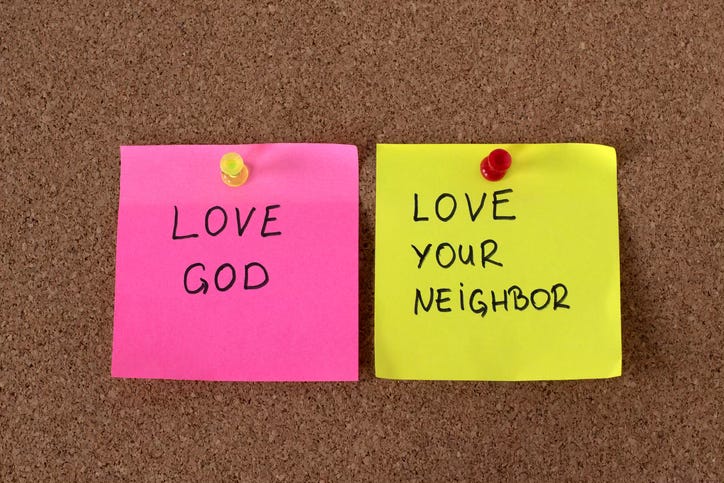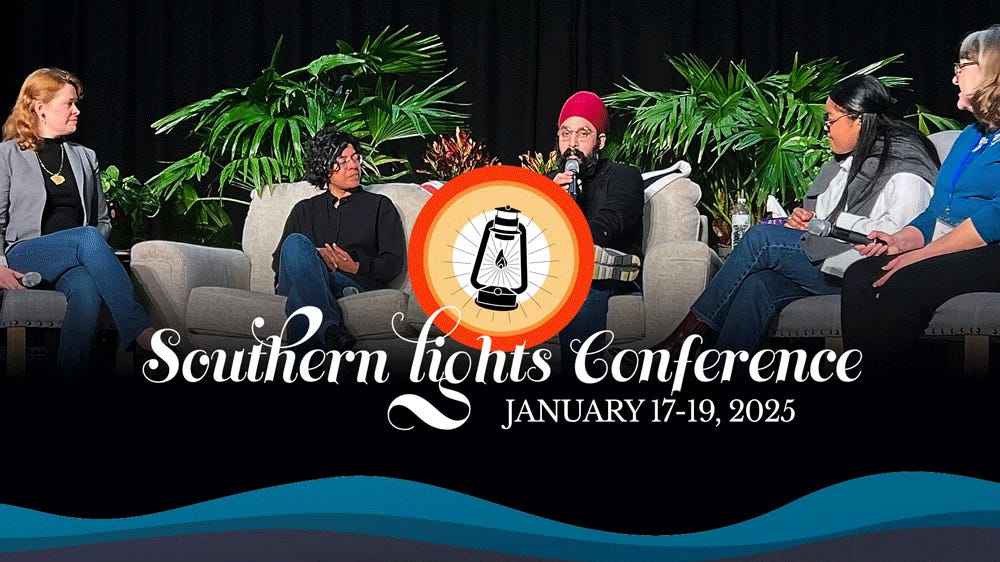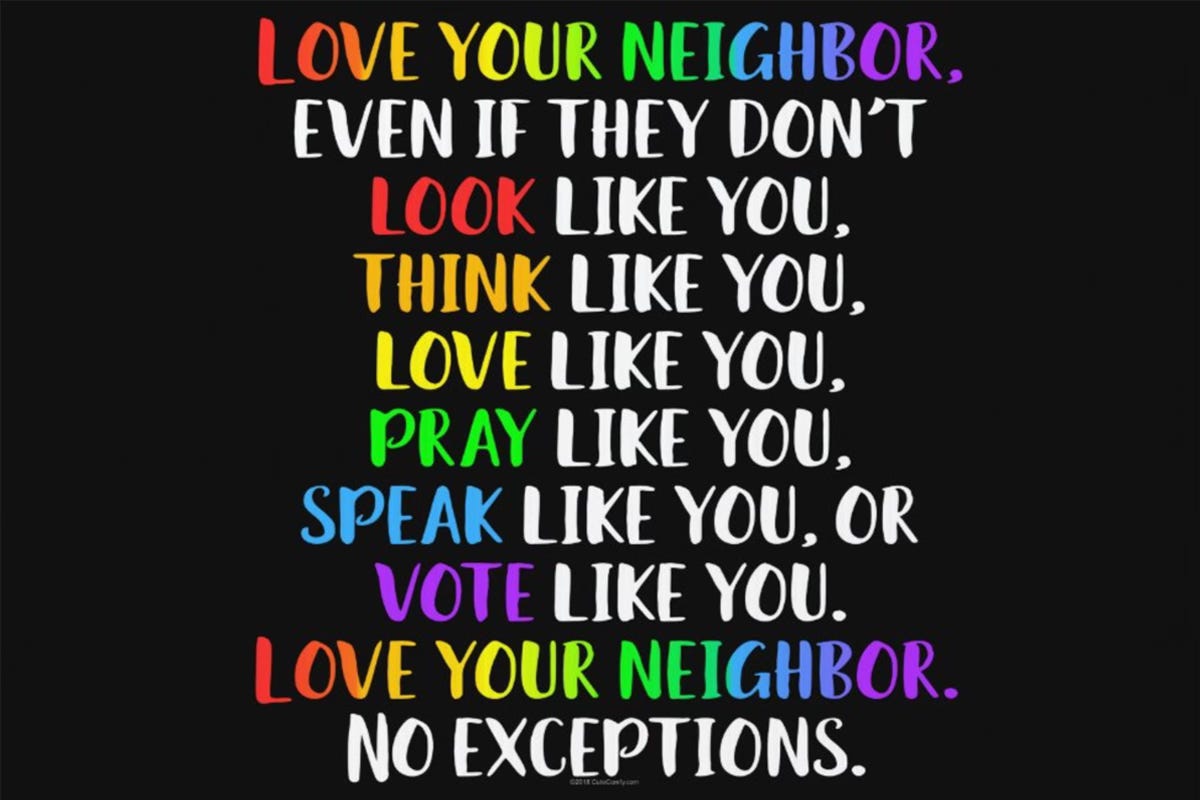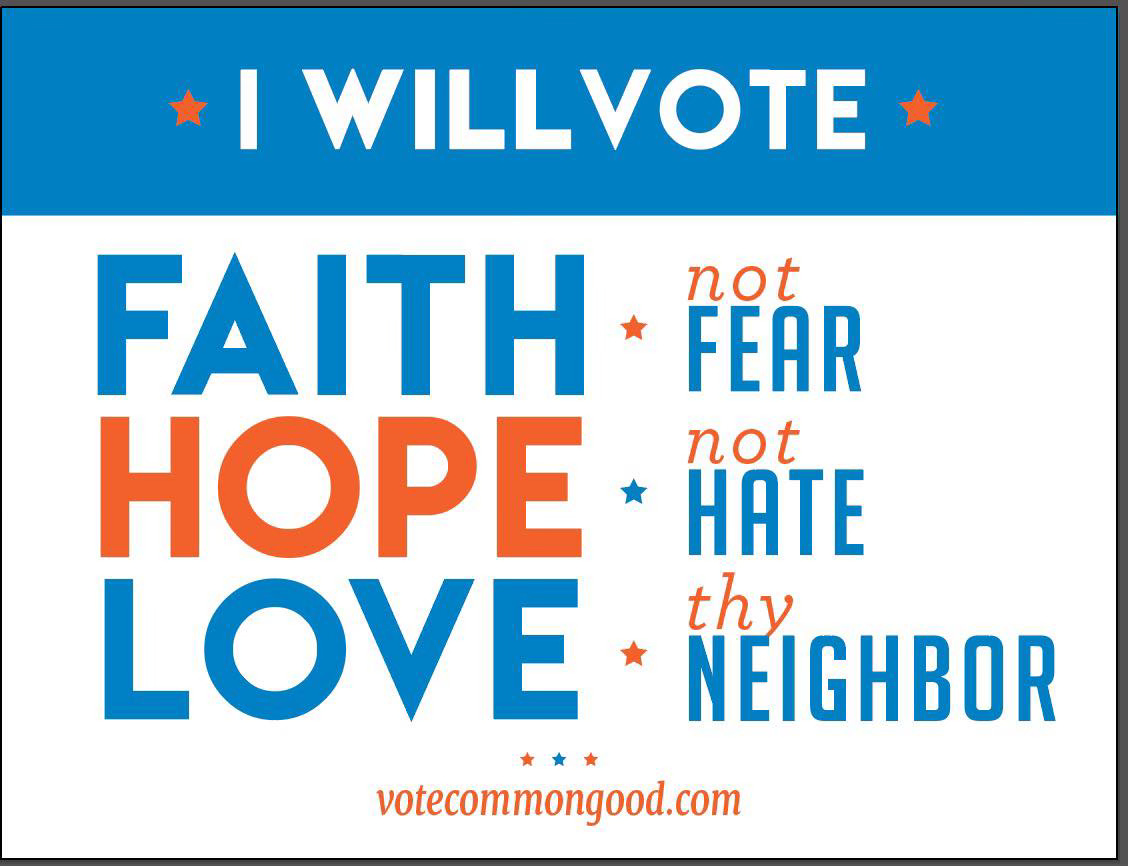Today is the Twenty-Fourth Sunday after Pentecost.
It is also the Sunday closest to All Saints Day (November 1) and many churches celebrate All Saints on this day.
It was hard choosing which text to go with today because there are, unlike most Sundays, two options! The gospel reading for All Saints is from John 11 and features Mary Magdalene (and you all know how much I LOVE John 11). The passage for the twenty-fourth Sunday after Pentecost is Mark 12, and it seems to be the perfect gospel reading for this final Sunday before the election.
I’ve opted to go with the latter for today’s reflection. It just feels more timely. Maybe these words are the ones I most need to hear.
Please consider becoming a paid subscriber of The Cottage. This publication is completely independent — there are no sponsors, ads, grants, or institutional backers. It continues with the financial support of appreciative readers.
Thank you. I’m grateful for your support.
Mark 12:28-34
One of the scribes came near and heard the Sadducees disputing with one another, and seeing that Jesus answered them well, he asked him, “Which commandment is the first of all?”
Jesus answered, “The first is, ‘Hear, O Israel: the Lord our God, the Lord is one; you shall love the Lord your God with all your heart, and with all your soul, and with all your mind, and with all your strength.’ The second is this, ‘You shall love your neighbor as yourself.’ There is no other commandment greater than these.”
Then the scribe said to him, “You are right, Teacher; you have truly said that ‘he is one, and besides him there is no other’; and ‘to love him with all the heart, and with all the understanding, and with all the strength,’ and ‘to love one’s neighbor as oneself,’ — this is much more important than all whole burnt offerings and sacrifices.”
When Jesus saw that he answered wisely, he said to him, “You are not far from the kingdom of God.” After that no one dared to ask him any question.
It is hard to imagine a more perfect gospel reading on the Sunday before this election. Love God. Love your neighbor as yourself. As Jesus said, “there is no other commandment greater than these.”
Even the skeptical questioner who came asking which commandment was the greatest was satisfied with Jesus’ answer. You are right, Teacher — this is the most important thing.
Love. Love God. Love your neighbor. Preach that. Urge your friends, your family, and your congregation to vote with Jesus’ words in mind.
This is the most important thing.
End sermon.
Well, maybe not.
Because that wasn’t the last word in the text. There’s a brief tag, a moral, at the very end of the passage: When Jesus saw that the scribe answered wisely, he said to him, “You are not far from the kingdom of God.” After that no one dared to ask him any question.
Yesterday, at the hotel where I’m staying in Minneapolis, I was talking with another guest. She asked what I was doing in the city. I replied that I was preaching this weekend at a Methodist church. She didn’t run away (that’s good!) and instead queried, “What are you preaching?”
“The reading this week is a great one!” I exclaimed happily. “Perfect for the weekend before this election: Love your neighbor as yourself.”
She laughed. “Good thought. The world would be better if everybody did that.” She paused and added, “But what if your neighbor is an axe murderer?”
“An axe murderer?” I replied. “I was thinking about my neighbor with the leaf blower! Or the one who put up a security light that shines in my bedroom. I can’t say I love those neighbors.”
I suspect that’s why “no one dared to ask Jesus any question” after Jesus made this neighbor comment. Loving your neighbor is the most important, most beautiful, most ethically obvious biblical thing to proclaim. This is Jesus’ central teaching.
And it is nearly impossible to live. Because we all can immediately think of exceptions to the rule.
A few weeks ago, I was invited to screen a new film — Leap of Faith. The film is from Nicholas Ma, the same director who gifted us with Won’t You Be My Neighbor?, the lovely movie about Fred Rogers. Ma’s new project follows twelve pastors from Grand Rapids, Michigan, over the course of a year. These pastors, from diverse backgrounds with very different theological perspectives, came together to think about and practice what it means to be good neighbors during these days of intense division and political polarization.
The pastors started with great optimism — idealistically believing that gathering together amid their own differences would model for the whole community the power to love one’s neighbor and change the city.
Instead, they learned loving one’s neighbor wasn’t easy.
You see, one of their own number — a Methodist pastor — was a lesbian. She didn’t want to talk about that. She came to the project wanting to address racial and political division in Grand Rapids. But her presence, her simply being in the room, unsettled more than half of her colleagues as they made her an “issue.” The group was powerfully challenged as some of the group increasingly realized how hard it was to really love her, their sister pastor. A lesbian pastor.
As the simmering tensions became more obvious, one of the clergy said, “You know we came here thinking that we would love our neighbors and change the city. But now, we found that the problem isn’t ‘out there.’ We might be the problem.”
The group fell silent.
No one dared to speak.
That’s where Jesus’ words take us. Yes! Love God! Love your neighbor. And then the stark reality. Love him? Love her? Really? That person isn’t my neighbor — that person doesn’t count.
Maybe it is best not to say that. Or say anything.
Perhaps one of the saddest features of Christian nationalism right now is how the leading pastors are reinterpreting passages like today’s gospel. “Nationalism” immediately puts limits on the question of our neighbor — your only neighbors are those who are citizens of your nation. And, when you add the qualifier “Christian,” the only neighbors who count are those who share both your religion and your citizenship. From this perspective, “love your neighbor” applies only to other Christians who are native-born American citizens. Indeed, in this view, true love of neighbor is conversion of those who aren’t Christian and forced obedience to the law. Love of neighbor means creating an ordered “Christian America” in conformity with biblical mandates.
To put it bluntly, Christian nationalism doesn’t shut up when it hears Jesus say “love your neighbor as yourself.” It keeps talking. Keeps explaining in order to explain away. But the biblical response — the deeply spiritual response — to this teaching is silence.
The followers of Jesus don’t try to interpret Jesus’ command or dim its challenge. Instead, followers of Jesus let these clear, simple words call us to live in such a loving fashion that we eventually learn that we ourselves can be part of the problem when we seek a truly neighborly world.
Silence — the deep recognition of our own complicity in the challenge of loving our neighbors — shouldn’t keep us from the moral calling to do so. Indeed, silence compels us to reach beyond the limits of our hidden bigotries and quiet hatreds to act on Jesus’ command.
As one of the pastors in Leap of Faith eventually figured out:
“I think a lot of people would say the world out there is getting worse, we are literally being taught to hate each other.
But if there's something that we can point to and say ‘yes, but’ there's humanity, ‘yes’ there's worth, ‘yes’ there's goodness. And that’s bigger than what I’ve been taught or what I’ve been told to despise about you, you have to want that, you have to want the potential of what's possible.”
Love your neighbor. Not because it is a good slogan. Not because it is easy. Not because you do it. And not because a candidate or a political party actually does it. Love your neighbor because it moves us past what we’ve been taught to despise and what we’ve been manipulated to hate. You love your neighbor because you want to, because you want the potential of what’s possible. Love your neighbor is a singularly important aspiration — a personal aspiration, a communal one, even a national one.
So, this Tuesday, vote to love your neighbor. That’s an aspiration worth pursuing. And insisting on love — real love — to bind up the wounds of this nation is something we should all want. And the more people who want a neighborly world, the more possible the potential of neighborly love becomes.
Vote wisely. Not for your own interests, but for the interests of others. Not only for the neighbors you like, but for all your neighbors. Even the ones with the wrong sign in their front yard. Even the guy with the leaf blower.
Love God. Love your neighbor. Imagine what would be possible. Imagine the potential of a more neighborly world.
Do that. And may grace fill in the gaps.
COTTAGE NEWS
Stay tuned!
I’m in conversation with the production and publicity folks for the film, Leap of Faith. I *think* we’re going to have a special showing for The Cottage paid subscriber community. More information and details will follow when we work this out!
A gift? Really?
Some of you may have received a gift offer for a month’s subscription to The Cottage. This is a gift from Substack. It’s a real thing — just download the Substack app and Substack gives you a free month!
I was surprised when they told me they were going to do this for my most frequent readers. This a way they express their appreciation to you for making Substack a great place for their writers.
We all like surprises! (The offer is only for those who received the invite directly from Substack.)
INSPIRATION
Build me a bridge over the stream
to my neighbour’s house
where he is standing in dungarees
in the fresh morning.
O ring of snowdrops
spread wherever you want
and you also blackbird
sing across the fences.
My neighbour, if the rain falls on you,
let it fall on me also
from the same black cloud
that does not recognise gates.
— Iain Crichton Smith, “Neighbour”
When we love a person, we accept him or her exactly as is: the lovely with the unlovely, the strong with the fearful, the true mixed in with the façade, and of course, the only way we can do it is by accepting ourselves that way.
― Fred Rogers
SOUTHERN LIGHTS ELECTION WEEK SPECIAL
Come to St. Simons Island, Georgia in January (or join us virtually) for Southern Lights, a yearly gathering hosted by me and Brian McLaren. Our theme this January is Reimagining Faith and Democracy — and we’re going to continue exploring faith and democracy no matter what happens on November 5. This year, we’ll be joined by guests Robert P. Jones, Jacqui Lewis, Dante Stewart, and Mihee Kim-Kort as well as great musicians!
CLICK HERE for information and registration.
Enter This Code — SLVote24 — and get a 20% discount on registration through November 5th!
We make our friends; we make our enemies; but God makes our next door neighbor.
— G.K. Chesterton







May Grace fill the gaps, indeed. Amen.
If we can purposefully remember with focused meditative awareness that in each moment we are an eternal imprint of love radiating out into the world, our task here on earth is accomplished.